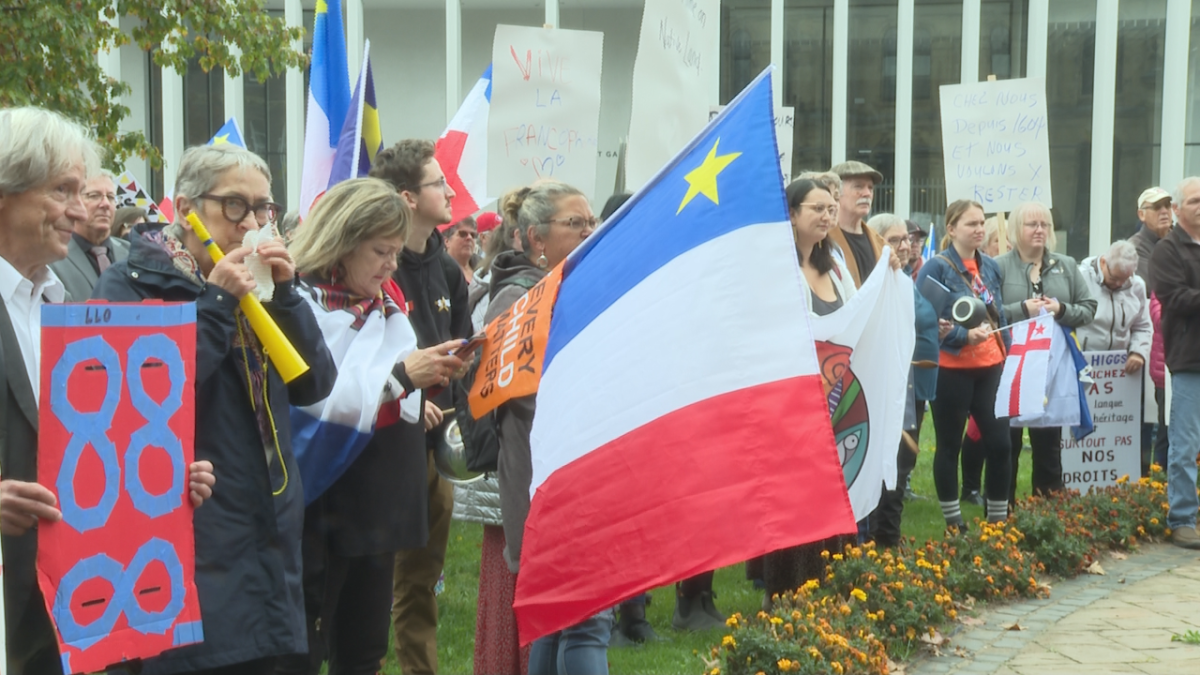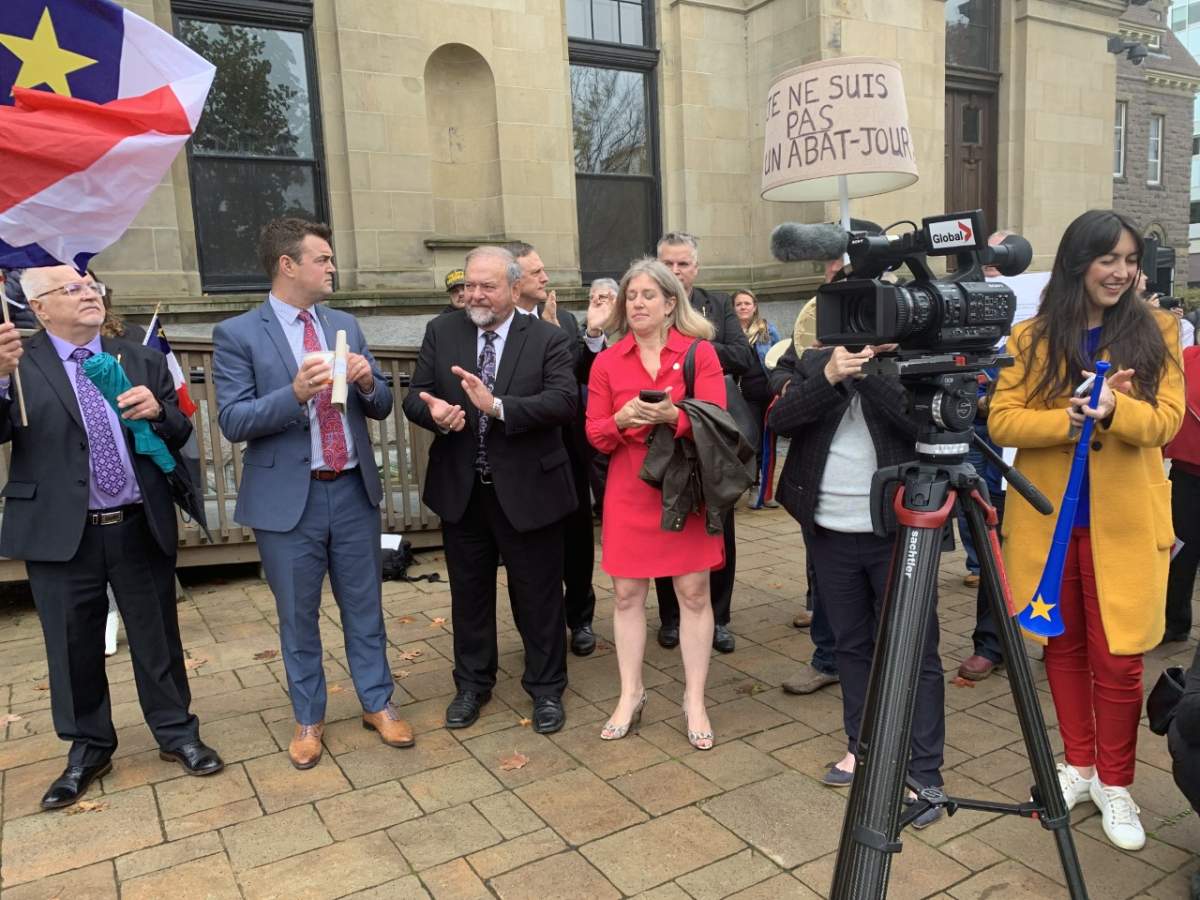The Societe de l’Acadie du Nouveau-Brunswick and the Wolastoq and Mi’kmaw Nations marched in a traditional Acadian Tintamarre to the legislature in solidarity for language and cultural rights ahead of the first throne speech in two years.

More than 300 people took to the streets in Fredericton, marching from city hall to the legislature on Tuesday, banging on pots and pans, using ceremonial drums, cow bells and horns.
A Tintamarre is exactly that, taking to the streets dressed up and making as much noise as possible with instruments, and is typically held on National Acadian Day.
“We are all treaty people who’ve come to this space, this safe space, to send a message,” said Sitansisk First Nation Chief Allan Polchies.
The groups said there is an inattention to minority rights in the province. Together, the groups said the Higgs government “has repeatedly suppressed minority rights regarding language, cultural recognition, and reconciliation.”
The Higgs government has yet to give a response to the Official Languages report that was submitted in February. It was also revealed the government has accelerated a timeline to eliminate French immersion for new entrants in the fall.
In a recent cabinet shuffle, Higgs appointed former People’s Alliance leader Kris Austin as Public Safety Minister, something the Acadian community said they saw as an insult given Austin’s previous ideas and policy on language.

Get daily National news
The Wolastoq Nations have also named the government in a title claim, aiming to reclaim the unceeded and unsurrendered territory in New Brunswick.
It removed all land acknowledgements from memos and speeches and advised government employees it cannot use it either back in October 2021.
“We cannot allow this government to continue,” said Pabineau First Nation Chief Terry Richardson. “Language is important. Language identifies who we are. Ask Aboriginal people what happens when we lose our language, we’ve been there, this is a warning.
“It’s a notice to the French world,” he added in French.
Richardson said Indigenous and Acadian groups must continue to voice their concerns.
“United we stand, divided we fall,” he said, speaking to the crowd.
Alexandre Cedric Doucet, the president of SANB, said the government and all parties have to engage in concrete consultation with linguistic and cultural groups.
“I think the Higgs government has to respect us,” he said. “We want some leadership and also some respect from the Higgs government and from the premier. I think the Premier in this province has to unify this province, not divide it.”
Doucet said he hopes a response to the official languages report comes quickly in the new session, having been put off twice since it was given to the government.
“The Premier needs to have a better public discourse on the linguistic file, with the Indigenous Peoples and the Acadian and French community.”
Several Liberal MLAs were on hand when the march arrived at the legislature, several walking with the groups from city hall.
Susan Holt, Liberal leader, was one of them.
“It has also been clear that with First Nations in this province our current government with what they are doing with land claims and tax agreements, it’s reconciliation my a–. We cannot be divided,” she said.
“We cannot be divided by a type of politics,” she said, translated from French.
Green party MLAs David Coon and Megan Mitton were also seen in the crowd, as well as now-Independent MLA Dominic Cardy.
One of the Liberal MLAs, Francine Landry, also brought a lampshade, which carries significance from comments Brunswick News quoted Higgs as saying in 2020 about northern ridings, who are primarily Francophone.
At the time, Higgs was quoted as saying, “you could run a lampshade” in those ridings “and you’d get a Liberal.”
It said, translated to English, I am not a lampshade.
In the end, one common theme emerged: a respect for language and a voice at the table when decisions are made about New Brunswick’s Indigenous and Acadian people.
“As a leader of the Indigenous people in this great land, we have to ensure that we have a government … that (is) listen to all of our voices,” said Polchies.










Comments
Want to discuss? Please read our Commenting Policy first.